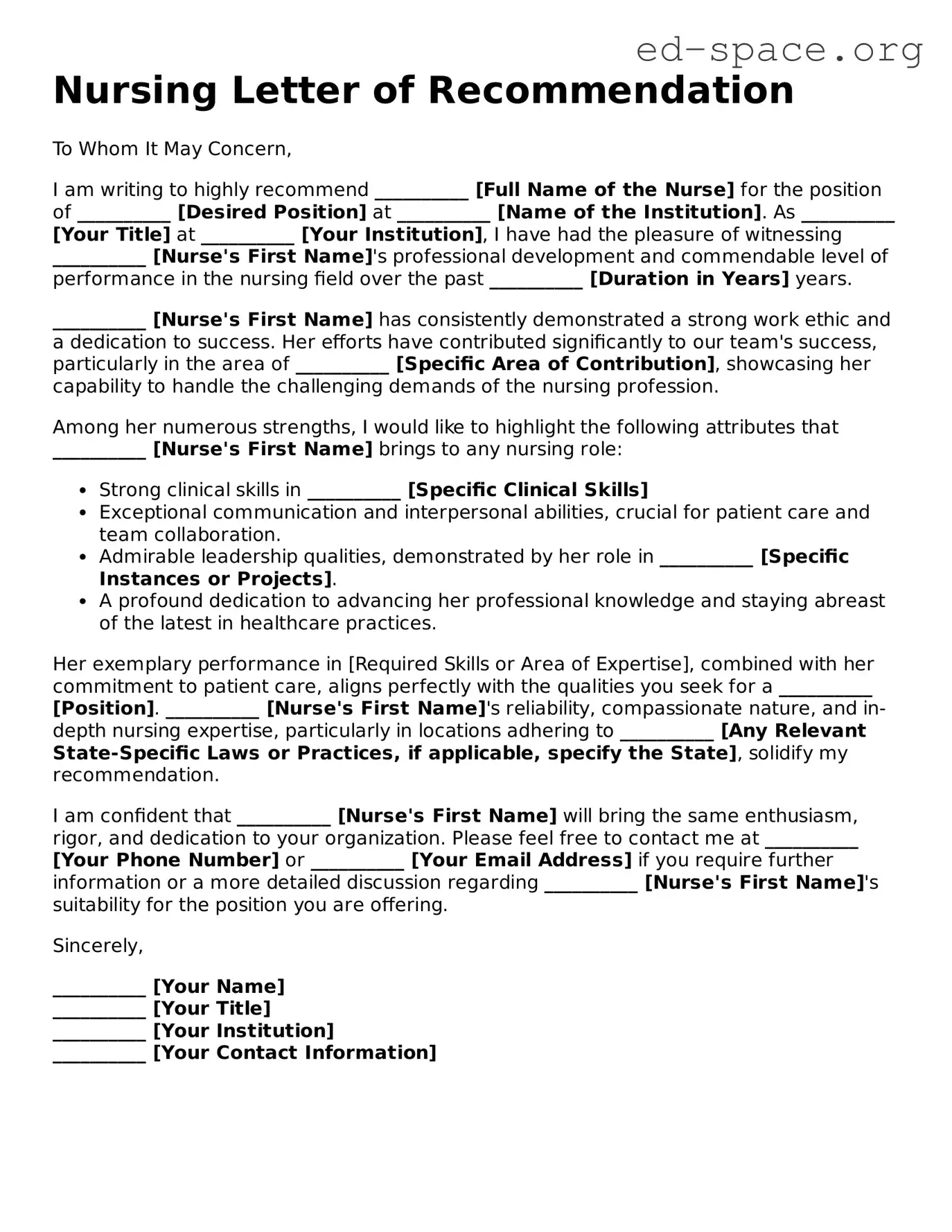What is a Nursing Letter of Recommendation?
A Nursing Letter of Recommendation is a document written by a professional, such as a nurse manager or a professor, to vouch for an individual's skills, character, and qualifications for a position in the nursing field. This letter plays a vital role in job applications, academic applications, or other opportunities within nursing, providing insight into the candidate's practical abilities and work ethic.
Who can write a Nursing Letter of Recommendation?
Typically, a Nursing Letter of Recommendation should be written by someone with a professional standing in the nursing or healthcare field who has directly observed the individual's work. This could be a senior nurse, nurse manager, medical doctor, or nursing faculty member. The writer should have firsthand knowledge of the individual’s clinical skills, bedside manner, and professional conduct.
What should be included in a Nursing Letter of Recommendation?
A comprehensive Nursing Letter of Recommendation should include an introduction of the writer, the nature, and length of their relationship with the applicant, detailed examples of the applicant's nursing skills and accomplishments, personal qualities that make them a good fit for the nursing profession, and a clear recommendation for their application. It should be professionally formatted, well-written, and free of any grammatical errors.
How long should a Nursing Letter of Recommendation be?
While there is no strict length requirement, a Nursing Letter of Recommendation is typically one page long. It should be concise yet thorough, providing enough detail to support the recommendation without overwhelming the reader with unnecessary information.
Can a Nursing Letter of Recommendation be emailed?
Yes, a Nursing Letter of Recommendation can be emailed directly to the requester, such as an admissions office or employer, if they accept digital submissions. However, it's important to follow the specific instructions provided by the recipient regarding submission format. Some may prefer or require a sealed and signed physical copy for authenticity purposes.
Is a specific form needed for a Nursing Letter of Recommendation?
While there is no universal form for a Nursing Letter of Recommendation, it's crucial that the letter is professionally formatted and includes all necessary information about the applicant's qualifications and the recommender’s endorsement. Some organizations may provide specific guidelines or templates to follow, so it's advisable to check with them before beginning the letter.
